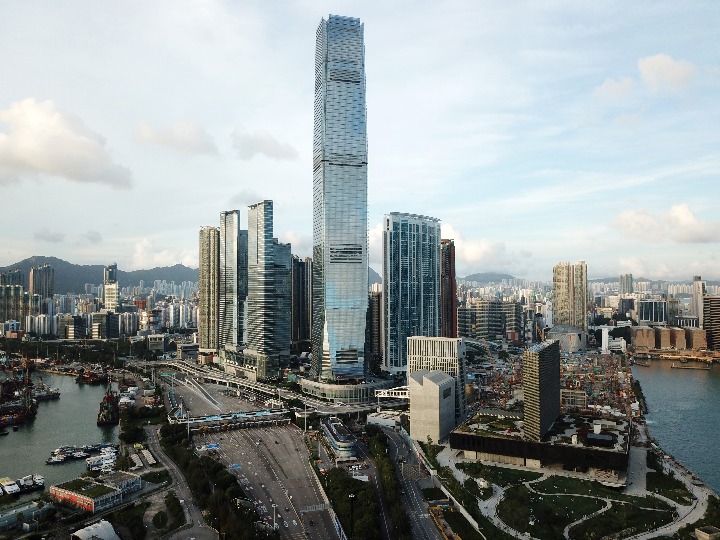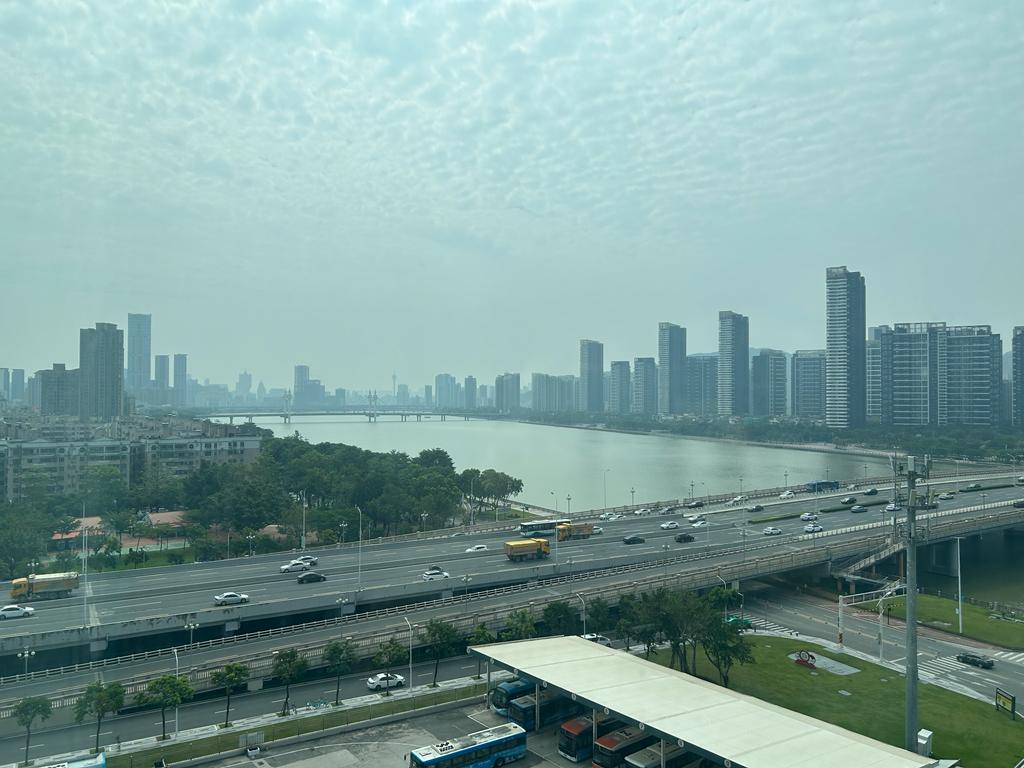[ad_1]
The recent remarks made by Vice-Premier He Lifeng on the central government’s support of Hong Kong to retain its hallmark of internationalization and its role of capital mobility, and the recent comments by Zhuhai party-secretary Chen Yong that Zhuhai on Macau’s economic diversification and business cooperation with Portuguese-speaking countries have pointed to the new economic repositioning of the Hong Kong and Macau special administrative regions, respectively.
During the Summit of the Global Financial Leaders’ Investment Summit on November 7, China’s Vice-Premier He Lifeng made several important points on the economic role of Hong Kong. He said that Hong Kong should strengthen its financial infrastructure to increase its level of influence. By financial infrastructure, he refers to (1) the need for Hong Kong to promote cross-border trade and investment with the support of Beijing, (2) the necessity of Hong Kong to open up the financial and monetary markets further as an experiment, (3) the persistence in improving the financial connecting mechanisms between the mainland and Hong Kong capital, (4) the consolidation of Hong Kong as an offshore Renminbi exchange platform, (5) the trend of strengthening the city as an international wealth fund and asset management centre, (6) the strategy of building up Hong Kong as a financial technology hub and green financial centre, and (7) the function of elevating Hong Kong’s status as an international financial centre.
Secondly, He Lifeng pointed to Hong Kong’s need to expand its international business networks and friendship for the sake of consolidating its financial and monetary status. Furthermore, Hong Kong should actively participate in regional cooperation and interact with the financial and monetary world through its expansion into the ASEAN market and the Middle East market.
Third, He Lifeng remarked that Hong Kong should adapt to the changes in the international and regional markets through its active participation in the construction of the Greater Bay Area, through its deepening integration with the nation, and through its further participation in China’s national development and modernization.

He’s remarks are significant for Hong Kong’s emerging economic repositioning of Hong Kong. Basically, he delineated the two-pronged strategy adopted by China to enhance and reshape Hong Kong’s economic position: relying on the “heartland” of China, to borrow from the geopolitical term of Halford MacKinder, in Hong Kong’s economic integration with the Greater Bay Area, and expanding Hong Kong’s external economic relations under Beijing’s approval and support to the ASEAN and Middle East markets. In short, the two-pronged strategy of relying on and penetrating the mainland Chinese “heartland” and of enhancing Hong Kong’s external economic collaborations under China’s Belt and Road initiative.
On November 10, the Zhuhai city’s party-secretary Chen Yong visited Macau and met Chief Executive Ho Iat-seng. Chen Yong made comments that are, coincidentally speaking, pointing to the emerging economic repositioning of Macau.
Chen Yong said that Zhuhai and Macau had a long history of citizen interactions, and that Zhuhai from now on is going to play a crucial role to “accompany” Macau’s process of developing economic diversification “suitably” through the In-depth Cooperation Zone in Hengqin. He also added that Zhuhai is providing convenience to the life and work of the people of Macau. With the acceleration of the construction of the Macau-Zhuhai cooperation items, Chen said, the region’s development will have radiative impacts on the western regions of Guangdong. According to Chen, Zhuhai hopes that it will strengthen the cooperation with Portuguese-speaking countries through Macau as a centre, a platform and as a base, and that both Zhuhai and Macau will develop together.
Although He Lifeng is a central-level high-ranking official and although Chen Yong is a local-level party-secretary, their remarks can be taken together as a reflection of how the mainland’s central government and local government perceive the necessity of both Hong Kong and Macau to reposition themselves economically and strategically.
From MacKinder’s geopolitical perspective, Hong Kong’s deeper economic integration and interaction with the Greater Bay Area can be seen as a central government’s plan of utilizing the traditional strength of Hong Kong as a window to absorb more foreign investment and trade into the “heartland.” It is a new push from the central government for Hong Kong to enhance its role as a financial and monetary centre, while attracting more investment and trade from other countries, like those in ASEAN and the Middle East, to the mainland. The recent visits by Chief Executive John Lee and his business delegation to the Middle East and Southeast Asia could be seen as moves strongly supported by Beijing.
Most importantly, Beijing’s recent White Paper on the Belt and Road Initiative has already named Hong Kong’s role as an arbitration centre. In other words, geopolitically speaking, the central government has tried to make use of Hong Kong’s common law system to establish the city as an arbitration hub for international businesses.
In fact, the Hong Kong authorities have expressed their interest in joining RCEP, a move that has already acquired the support of the central government in Beijing. While Hong Kong’s participation in RCEP will take time, its intention and Beijing’s support again demonstrate the geopolitical and geoeconomic calculations: Hong Kong has to strengthen its role as a super-connector for its motherland – a super-connector whose idea stemmed from the C. Y. Leung administration but whose content has not yet been fully concretized until the current John Lee government.
The remarks made by Chen Yong illustrates how the mainland authorities view the emerging economic role of Macau. The White Paper on the Belt and Road Initiative in October 2023 has pointed to the explicit role of Macau as a platform to strengthen China’s relations with the Portuguese-speaking countries. Macau since October 2003 has been playing this significant role through the Forum for Economic and Trade Cooperation between China and Portuguese-speaking Countries.
Recent media reports have pointed to the economic benefits reaped by Portugal in China’s Belt and Road Initiative, unlike Italy which has withdrawn from the Belt and Road scheme due to the Italian perception of lacking concrete economic benefits. Given the long-standing harmonious diplomatic and economic relations between Portugal and China, it can be anticipated that Macau’s role as a platform for Beijing to enhance its economic relations with Portuguese-speaking countries will continue to expand.

Chen Yong’s comment on how the Zhuhai-Macau cooperation can and will benefit western Guangdong also illustrates China’s national development strategy of utilizing the well-developed regions to stimulate the development of less well-off regions, domestically.
Interestingly, Chen’s remarks came after the Macau government’s publication of its economic diversification plan – a document published in August 2023 after 13 rounds of consultation with the public from June to July.
The economic diversification plan published by the Macau government covers five principal areas: comprehensive tourism and leisure industry, the industry of Chinese medicine and public health products, the modern financial and monetary industry, the high-tech industry and the elevation of traditional industries, and the convention and exhibition industry together with the development of cultural and sports industry.
The plan does implement what the central government has asked Macau to do, namely “suitable” economic diversification. However, from a critical perspective, the diversification plan lacks concrete key performance indicators. Out of twenty-seven indicators of the five areas of industrial diversification, thirteen have concrete statistical figures by the year 2028, mostly in the areas of high-tech development and convention/exhibition/sports/cultural industries. If half of the indicators lack performance targets, it would be easy for the Macau administration to claim achievements by 2028 – perhaps ironically a reflection of the word “suitably” as the central authorities might have assumed that some degree of economic diversification would serve the objective eventually.

The most ambiguous area of the diversification plan is how higher education institutions in Macau help the city’s economic repositioning and deepening integration with Hengqin. The plan mentions 44,052 students in Macau’s higher education institutions in 2022, but it says by 2028 “the number of students will be suitably increased.” From a critical perspective, workforce planning and local training will be necessary to gear up Macau’s new economic repositioning, apart from its reliance on the import of talents, including obviously mainland talents.
From an appreciative perspective, the diversification plan did mention the necessity of expanding higher education programs related to high-tech industries from 24 in 2022 to 40 in 2028.
Overall, it remains to be seen how the Macau authorities readjust their targets, if such targets exist, from time to time in response to the market demands and industrial needs.
Recently, Fujian has already enhanced its communication and interactions with not only Kinmen in Taiwan but also Macau – a trend pointing to the increasing role of Fujian province in the mainland’s attempt at enhancing economic integration with Taiwan. In view of this geoeconomic shift, Macau has a role to play in the process of Fujian’s economic interactions with Taiwan. Specifically, given that a sizeable percentage of Macau residents have Fujianese ancestry, Macau can and should enhance its economic relations with Fujian. Horizontally and geographically, Macau can forge closer economic relations with Fujian in the east while utilizing the physical space in Zhuhai’s Hengqin to achieve the objective of “suitable” economic diversification.
In conclusion, Halford MacKinder’s heartland theory can be applied to our deeper understanding of the emerging new economic repositioning of Hong Kong and Macau. Hong Kong has to fully utilize the mainland heartland by deepening its economic integration with the Greater Bay Area, while enhancing its role as a super-connector through the consolidation of external economic relations under China’s Belt and Road Initiative, especially ASEAN and the Middle East. Hong Kong’s role as an economic super-connector is geopolitically important. Amid continuous Sino-US power politics, Hong Kong’s economic space can be fully expanded through its deeper integration with the mainland while utilizing its motherland’s Belt and Road initiative to enhance external economic relations and reap concrete economic benefits through various China-led forums and through the city’s participation in more international organizations. Macau, on the other hand, has already gained its motherland’s dedicated support to use Hengqin, a very small part of the gigantic heartland, to achieve the objective of “suitable” economic diversification. At the same time, Macau will continue to play the role of a connector between China and the Portuguese-speaking countries, but it can and will have the potential to expand its economic relations with Fujian which is increasingly playing a crucial role in the mainland’s economic integration with Taiwan in the coming years. If the economic repositioning of both Hong Kong and Macau is now clear, the next challenge is how both cities will achieve the national plans and objectives.
[ad_2]
Source link
